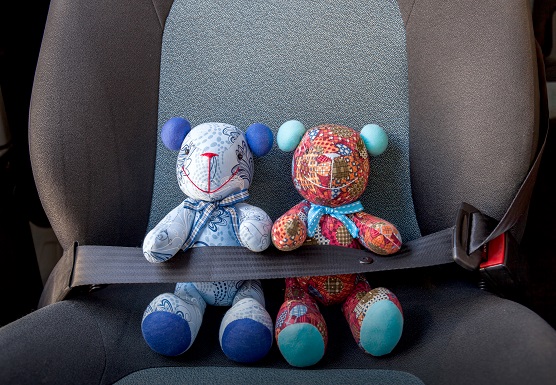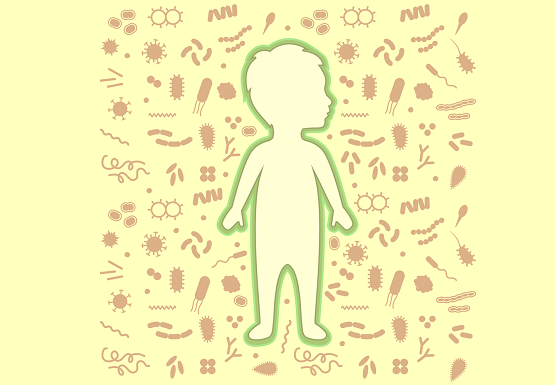My Baby Is Snoring

Babies are not too young to have sleep disorders. We learn more about the condition from Dr Dawn Teo, a paediatric Ear, Nose & Throat surgeon.
It is common to hear people talk about snoring as a party joke or use it as a comedic element in movies. But it is no laughing matter. It signals a potentially life-threatening disorder known as obstructive sleep apnoea (OSA) and it does not just affect adults, but young children including babies.
“In a child, the most common cause of OSA is enlarged tonsils and adenoids, but sometimes an enlarged tongue, floppy airway or facial skeletal malformations may be responsible,’ said Dr Teo.
“And in the case of babies, they can present early in life,” she added.
Generally babies between four months and a year old sleeps about 12 to 16 hours (including naps in between) in a day. For kids between 1 and 2 years old, a total of 11 to 14 hours is adequate. Listen for noisy breathing which sounds like nasal grunting sounds that may suggest munchkin has OSA and is missing out on healthy, restful sleep.
AFFECTS DEVELOPMENT
Some causes of paediatric OSA may resolve with age, however, most may not, according to Dr Teo. “Milder cases may improve with age. However, it is not possible to know the severity of sleep apnoea based on symptoms alone. The volume of snoring is not an indicator of the severity of sleep apnoea,” she added.
Childhood is a time of growth and development. Like adequate nutrition, adequate sleep is necessary for a child to grow and develop. Sleep apnoea affects the child’s breathing when he sleeps. This results in choking episodes and the lack of oxygen reaching the brain during sleep. This in turn results in interrupted sleep which in the short term, may result in daytime sleepiness and poor school performance.
In cases of severe sleep apnoea, the child may face developmental problems in terms of behaviour and learning, problems concentrating and may become hyperactive. It also predisposes them to a higher risk of cardiac problems in adulthood.
While these symptoms are indicative of sleep apnoea, “the child may need to undergo a sleep study test to assess the severity of the sleep apnoea,” Dr Teo explained.
This test can be performed in a laboratory, where his sleep and breathing parameters will be monitored and recorded continuously during sleep, to look for sleep disruption and evidence of laboured breathing or reduced airflow to the lungs during sleep. There will be sensors placed on your child’s head and body, and elastic bands placed around his chest and abdomen, connected by wires to a computer system that records the data collected. There will not be any pain, and most children will be able to fall asleep after they get used to the setup. One caregiver is allowed to stay overnight with the child during the study.
Dr Teo has also treated infants with OSA. “Besides the breathing problem during sleep, other symptoms in babies include poor feeding and growth, and restless sleep.”
APNOEA WITHOUT SNORING
Your child can have apnoea even if they are not snoring. Look out for symptoms like mouth breathing or heavy breathing, abnormal sleeping positions, restless sleep, day time tiredness, poor concentration or focus.
RISING NUMBER
Dr Teo sees about 600 children a year with OSA, often associated with enlarged tonsils and adenoids. “With growing awareness, parents are bringing their children in earlier for assessment, which in turn enables us to address the issues earlier. As OSA is also associated with obesity, the rise in overweight kids will result in more patients with OSA.”
TREATMENT
OSA should be diagnosed and treated promptly and multiple research studies have shown that surgery to remove the tonsils and adenoids is an effective first line treatment in these cases, according to Dr Teo. If the child is not able to undergo surgery, sleeping with a positive airway pressure mask is an option.
“It is also important to treat nasal symptoms from nasal allergies to improve results,” she added.
For children with obesity as a contributory cause of their OSA, Dr Teo advised that weight loss is an integral aspect. It can be managed at home or in school or you can seek a referral to paediatric specialists for weight management programmes.
Article contributed by Dr Dawn Teo, an accredited doctor of Mount Alvernia Hospital.
This article is taken from our My Alvernia Magazine Issue #32. Click here to read the issue on our website or on Magzter.



